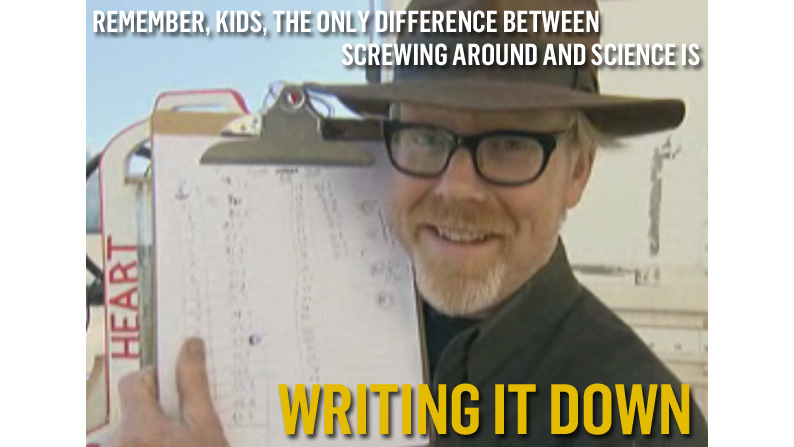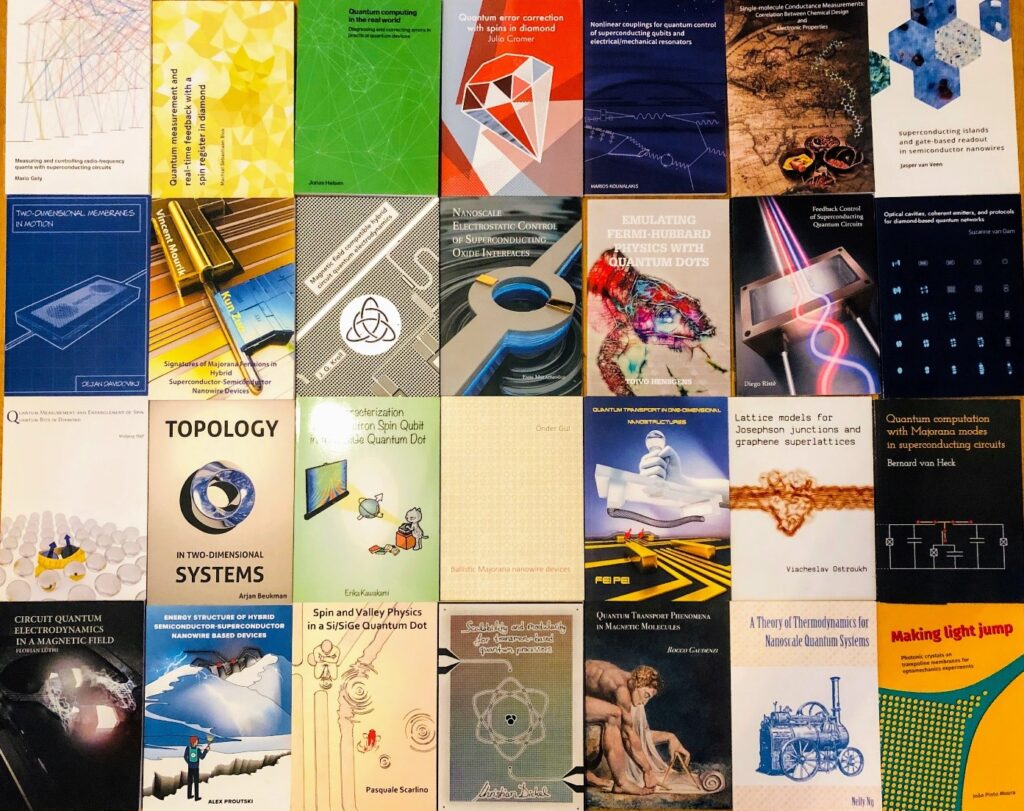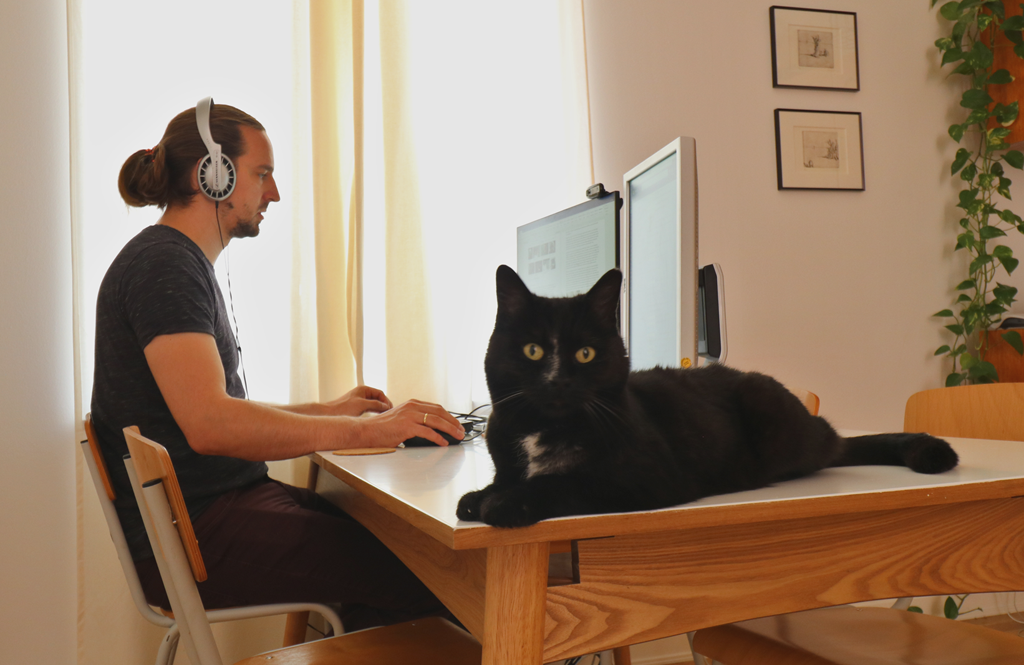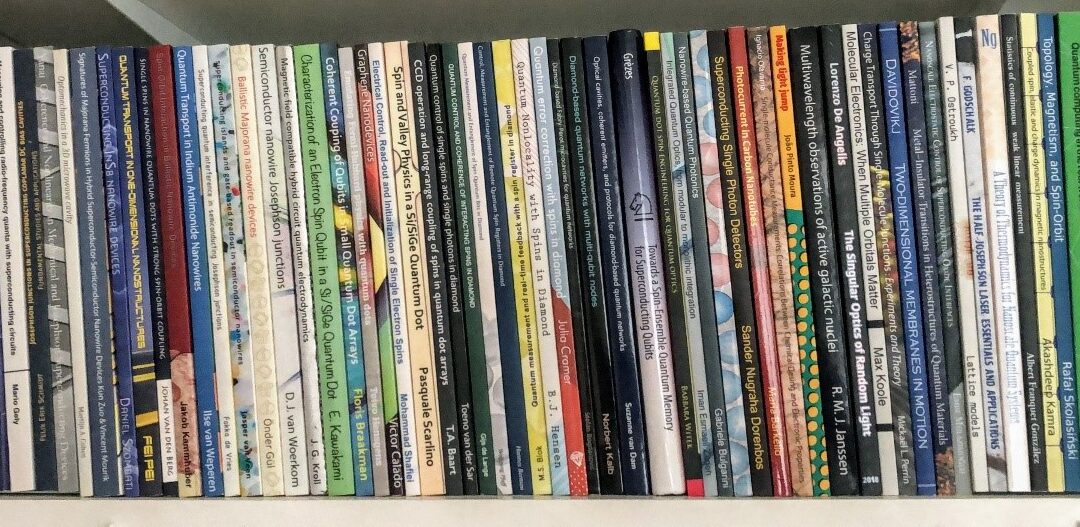
Adam Savage as a meme that captures the essence of science better than Karl Popper ever did. (Image credits: courtesy of DCL as mentioned by Adam Savage on his Tested website where he gives quote credits to Alex Jason)
We are trying to start a blog for this ML4Q Cluster and many people I tried to convince to write something asked me why I want to do this. Aren’t we all already overworked with our day job? Why should we blog about it on top of that? Or why not make podcasts or videos for youtube and tik tok? Firstly, maybe we will also do those things, we want to reach people with our science and if there are good opportunities we should take them. But my main drive for trying to start this blog is to bring this diverse research cluster together using a platform. Especially in this time where we meet less often in person, we should communicate somehow. But there is also something special about the written word that deeply connects to our work. Recently a friend sent me a copy of his thesis and it had the Adam Savage quote above on the title page. This gave me the final push to write this article. Our science is only in part about being a physicist, a skilled programmer or mathematician or good with electronics. We also need to be writers, because none of our results matter if they are not communicated well.
However, we also owe a debt to a society that pays our salaries and gives us the resources to follow our curiosity. This society pays it forward in the hope that we discover physics that can be harnessed in new technologies, that we come back with fascinating insights into the world we live in and that we educate young people. Many physicists often go into “normal” jobs and contribute what they have learned in their life as pure researchers. Maybe physicists with a versatile skillset are our most important output in the end and do justify society’s investment in our research. For those young researchers, every rung of the physics education ladder is completed by writing a thesis, so obviously writing is a big part of becoming a physicist. Staying a scientist in academia requires a steady output of publications, so writing remains important.
We usually write for other scientists, so our publications are often difficult to read even to other physicists working in adjacent fields. I definitely struggle with sorting out what is common knowledge and what is expert knowledge whenever I write a paper. Even more importantly, during the writing I struggle with understanding my own assumptions in order to clearly state them. As a non-native speaker, I also occasionally struggle with the English language. So I think the blog as a platform gives people working in ML4Q the opportunity to write for a larger audience, especially physicists in training. Writing requires practice and like acting or music, it does require an audience to really progress to the next level.
But beyond an educational tool, the blog is also a way for us to communicate issues within the cluster. I will try to demonstrate an example related to thesis writing that came to my mind when I got my friends thesis in the mail. I did my PhD in the Netherlands and the university paid for the printing of my PhD thesis as well as my friend’s thesis. In fact, I have a collection of many theses from people who graduated in my time there taking about a meter of space in my bookshelf. Now in the German system the printing costs are not generally covered and I would like to argue here that we should change that! The cost of printing 200 copies of a PhD thesis is about a month salary for a PhD student. That is a lot of money for the student but it is not a lot compared to the cost of a PhD. So let now state why we should invest a little more money. (I think Jülich or at least some Jülich Institutes pay for the printing.)
This extra investment first and foremost is a great motivator to write a good thesis and design a beautiful little book. I remembered that I really wanted to just have my thesis stand in the shelf next to the ones of all the students that came before me, people that I looked up to. I spent time designing a nice cover and trying to pull off a few Latex tricks here and there. Below you can find a picture with many thesis covers that showcases the creativity and love that people put into them. Or take a look at this blog post about thesis cover design. I remade all the figures that had been formatted for papers for the strange format of the Dutch PhD thesis which is somewhere in between A5 and A4. This little experience with design is another important skill that we would teach students more intensely if they knew about 200 copies were printed. It was also an amazingly rewarding moment for me to open the box with all the theses copies. A PhD is a difficult time and maybe we owe the PhD students who carry scientific progress this feeling of having a final product that they can hand to people and say I did this.

Dutch thesis covers from friends and colleagues from the author’s collection
With about 200 copies, I did hand my thesis out at the institute which felt wonderful. The printing probably also increases readership. Of course today you can find anybody’s PhD thesis online (much to the dismay of many politicians with PhDs), but I have read parts of the PhD theses of many of my friends that I might not have been motivated to read on a screen or would not have printed out because they have so many pages. At the point of the thesis printing, we have already invested a lot of money in a student, so we can try to spread the knowledge they earned amongst their peers. If we distributed student’s thesis copies within ML4Q, it could also help to bring our research together. We all work on different platforms or even very abstractly on quantum information, but we share this common quantum language – I think there would be lots of possibilities for cross pollination of ideas. So here is a first blog article about writing that also calls for some action within the cluster. I hope people will use this forum to argue, present ideas and share their stories.

Image: Christian Dickel
About Chris
Chris got into this qubit stuff because he wanted to understand entanglement better. Now he works on topological quantum computing, so he has clearly given up on understanding things.
